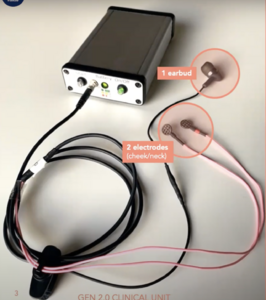Very true. I believe the recent lack of communication from Auricle has unnecessarily soured my perspective. This might be due to my recent transition from a mild to severe case of tinnitus. However, after re-reading the positive results of the Phase 2 trial and reading posts from
@linearb about their experience with the device, I'm feeling a bit more hopeful.
Based on my research, it appears that Lenire was submitted to the FDA on August 18, 2021, and wasn't approved until March 6, 2023, according to
this FDA document. So, if that's any indication, it took roughly 18 months from FDA submission to approval.
Considering that Susan Shore's/Auricle's device only completed its Phase 2 results, which were
released on June 2, 2023, and the FDA submission is expected sometime in 2024 (if it hasn't been submitted yet), we're likely looking at FDA approval for Auricle's device around 2026, at the earliest.
One encouraging point is that Lenire became available in the U.S. just a month after FDA approval in April 2023. This suggests that Lenire/Neuromod used the 18 months effectively, preparing everything to hit the ground running as soon as approval was granted. I hope Auricle can do the same. However, the lack of updates from Auricle is naturally a bit concerning.
I also hope Auricle reconsiders their U.S.-focused strategy. Lenire was launched in the UK and Europe within a year after FDA approval, so I don't see why Auricle couldn't aim for something similar.
The main reason I'm posting this comment is that, while this device could be positive and potentially groundbreaking, we're likely looking at 2027/2028 at the earliest before it's rolled out, gathers reliable real-world data, and becomes available for us to use.
In the meantime, I'm planning to step away from here, and I recommend others do the same. My severe tinnitus is awful, but I'm certain it will be at least a little more manageable if I spend less time reading and thinking about it. As difficult as it is to avoid focusing on it, I'm going to immerse myself in life as much as possible (while taking precautions in loud environments).
There's really no point in checking in frequently until Auricle achieves FDA approval. Plus, they don't seem inclined to release further information themselves. We might as well wait until 2026 and check back then. That's just my perspective—if checking in daily or weekly brings you comfort, that's understandable. But I think for many people, stepping away from tinnitus websites and getting busy with life might do more good.
To everyone here with mild, moderate, or severe tinnitus, I wish you all the best now and in the future. Hopefully, we'll be experiencing more peaceful moments in the next 5–10 years. Take care!

 Member
Member